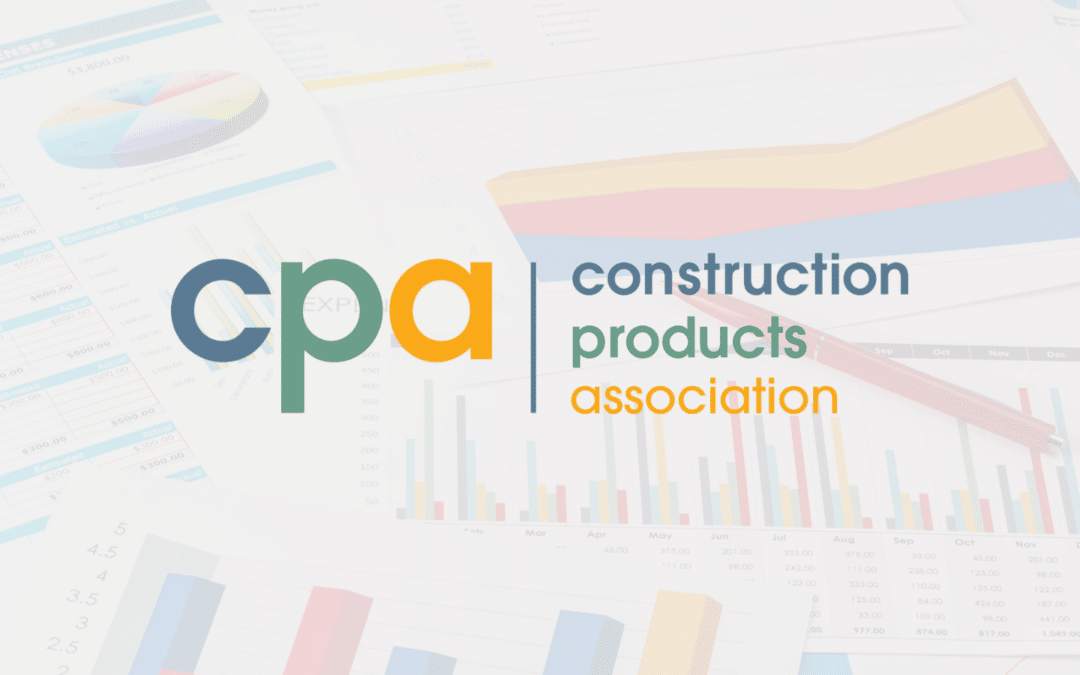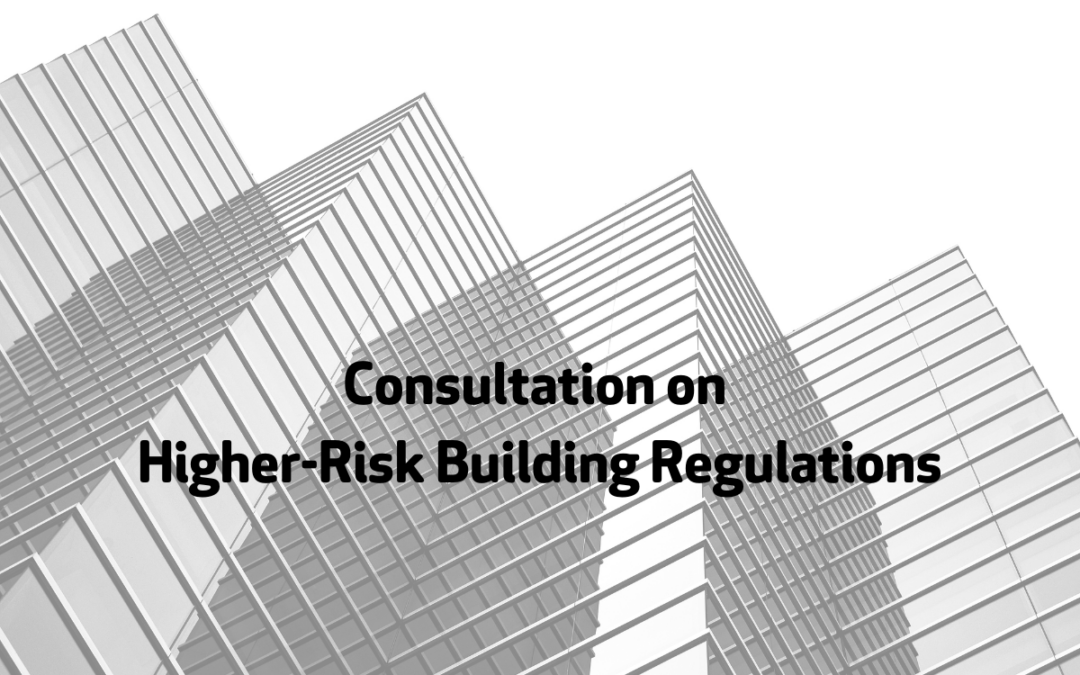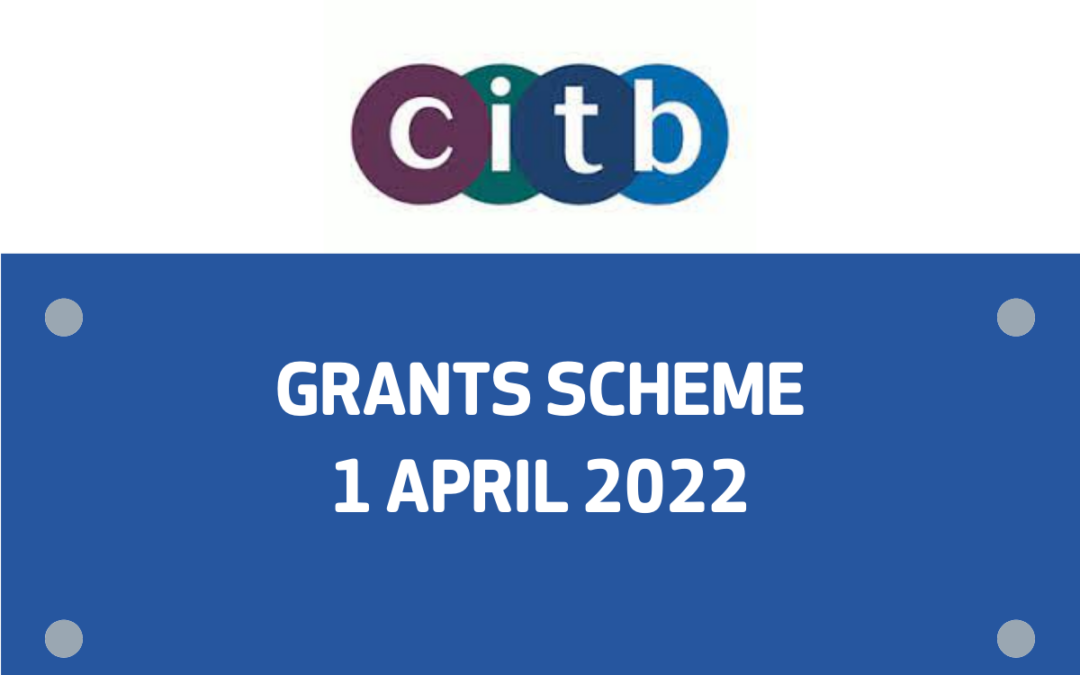
by Clair Mooney | Jun 29, 2022 | Building Safety Act
The Building Safety Act introduces a set of new roles and responsibilities for people who manage occupied, high-rise residential buildings.
Although the Act has become law, the duties it describes for existing occupied high-rise residential buildings have not come into force yet. Registration of existing buildings is expected to begin in April 2023, with the Building Assessment Certificate process expected to begin in April 2024.
A toolbox has been created to help those who will have duties under the Act to get ready for the new regime and manage risks effectively.
If you manage a high-rise residential building, you’ll need to take all reasonable steps to:
- prevent any building safety incidents
- reduce the severity of an incident, should one occur
The Act defines a building safety risk as the spread of fire, or structural failure. The spread of fire includes the spread of all forms of combustion, for example smoke, fumes, and heat.
In the Act, those responsible for occupied, high-rise residential buildings will be required to:
- register their building with the Building Safety Regulator (BSR)
- perform a building safety risk assessment
- introduce measures to manage building safety risks
- prepare a safety case report for their building to give to BSR on request
BSR will be publishing case studies and examples of proportionate responses to common situations as we develop the new regime.
The following series of pages will help you to prepare for the new regime. They contain information and advice on what the Building Safety Regulator is likely to need in any submission.
Safety case information in more detail
- Building Information
- Identifying building safety risks
- Risk prevention and protection information
- Safety Management Systems
- Safety case report
For a full explanation on the Building Safety Act and how it relates to FIS Members click here

by Clair Mooney | Jun 29, 2022 | Main News Feed
FIS is supporting this year’s Inspiring Change Conference and Awards Ceremony, which is taking place on Wednesday 6 July in London. If you haven’t yet booked your place, this is your last chance. You can register here
The Inspiring Change Conference 2022 is part of the FIR in Construction Programme, sponsored by CITB. It is your opportunity to hear inspirational speakers from diverse backgrounds, including politicians, industry stakeholders, and representatives from other sectors, who have promoted culture change within their organisations to create more inclusive workplaces and communities.
Hear from those who attended our last event
On the day you will:
- Hear about good practice from within the construction industry and beyond
- Learn how to attract and retain a more diverse workforce
- Develop your knowledge and understanding of how an inclusive culture is good for business and can positively influence organisational change
- Be inspired to work together to create a more diverse and inclusive industry
- Network with over 300 like-minded professionals from a range of organisations within the sector
The conference will incorporate the Inspiring Change Awards which highlight and reward organisations within the construction and infrastructure sector that have created more inclusive cultures in their workplaces, education, and the community.
The conference will be followed by Drinks Reception until 6pm.
Who should attend:
Those who can influence culture change within their organisation – Directors and Senior managers such as Chief Executives, leaders in Business Improvement and Business Development, Supply Chain and Procurement, HR and EDI Managers, Community Engagement, FIR Ambassadors and advocate on equality and inclusion.

by Clair Mooney | Jun 27, 2022 | Market data
The latest weekly update from CPA is available to members here. The updated issues are in Pages 1-5 of the weekly update whilst subsequent pages have existing data and information that remain relevant. This update includes:
- Insolvency Service UK Construction Insolvencies (April 2022)
- DLUHC House Building Starts and Completions in England (2022 Q1)
- HMRC UK Property Transactions (May 2022)
- ONS/Land Registry UK House Price Index (April 2022)
The next CPA forecasts (Summer) will be published on Monday 25 July and there will be a CPA webinar on the forecasts at 11.00 on Wednesday 27 July.

by Clair Mooney | Jun 23, 2022 | Main News Feed
One of UK construction’s most recognised executives has been chosen to succeed Andy Mitchell as the new Co-Chair of the Construction Leadership Council.
Following an open recruitment process, an independent panel comprising industry, members of the CLC’s Senior Advisors Group and Government officials, recommended Mark Reynolds (Mace Group Chairman and CEO) to lead the CLC in partnership with Lee Rowley MP (BEIS Minister for Industry). The panel also recommended Richard Robinson (CEO, Atkins UK and Europe) for the newly created Deputy Co-Chair role.
Mr Reynolds has played a key leadership role in the CLC in recent years, including jointly chairing its People & Skills work stream; and co-ordinating its response to the Covid pandemic. As a member of CLC’s Steering Co-Ordination Group, he shaped the CLC’s 2022 Strategy with its focus on Construct Zero, Building Safety, meeting the skills challenge, and implementing the Construction Playbook. He also chairs the Government’s Construction Skills Delivery Group.
Mr Reynolds will be building on the four CLC priorities as he officially takes on the role today – 23 June 2022
Mr Reynolds commented:
“I am delighted to take on this exciting co-chair role following the great work by Andy over the last four years. During that time, I have seen first-hand how the CLC can make a real difference for companies across the whole of the industry”.
“We have faced – and continue to face – challenges that no one organisation can tackle on its own, such as the cost of inflation and impact of rising energy prices; global supply chain pressures and ensuring our collective progression to Net Zero. I am also very pleased to be working with Richard Robinson, CEO for Atkins UK and Europe, on this agenda; who will strengthen our collective leadership and capacity in his role as Deputy Co-Chair.”
“The CLC, working in partnership with Government, provides crucial leadership to the sector. We do this most effectively where we speak to, and for, all parts of industry. Whilst I will continue the CLC’s focus on its four priorities, I would like to engage and listen to the wider industry over the summer to ensure we continue to deliver on the issues that matter most to us as a sector. I want to take this opportunity to encourage organisations across construction to get involved with the CLC’s work.”
Commenting on the appointment, Construction Minister Lee Rowley MP said:
“It’s a pleasure to welcome Mark as the new chair of the CLC. He’s been a key part of the Council in recent years, helping coordinate the industry’s Covid response, as well as supporting job creation in his role with the Construction Skills Delivery Group.
Mark will play a vital role in the months and years ahead as we work to decarbonise the industry through Construct Zero, support it through the Building Safety Act’s introduction, and deliver the first sector-wide skills plan for construction.
I would also like to pay tribute to Andy Mitchell for his outstanding leadership to date, which puts the CLC in a strong position to keep delivering for the sector.”
Outgoing chair Andy Mitchell said:
“The CLC is in a great position to lead industry transformation, working together to overcome any issues that may affect companies nationwide. I am delighted that Mark will be driving forward the Council’s agenda, and look forward to seeing the outputs of its work in the future”.

by Clair Mooney | Jun 23, 2022 | Main News Feed, Transformation
The Construction Innovation Hub is celebrating the completion of the Value Toolkit, following a successful development programme with over 200 industry partners. The announcements include the launch of a new BSI flex standard to underpin value-based decisions making in the sector.
Bringing together those who have contributed to its journey, including government, clients and industry partners, the Hub is now sharing the transition phase to adoption.
The Value Toolkit is a pioneering suite of tools that will be used by industry to embed value-based decision making in the built environment sector. It is a government funded industry-led initiative – with roots in the Construction Leadership Council’s Procuring for Value report and set to deliver on the ambitions of the Construction Playbook and the IPA’s Transforming Infrastructure Performance Roadmap.
The Toolkit has been developed to reframe the definition of value, and how it can be evaluated and measured, capturing wider, whole-life considerations around net-zero, user experience, productivity and social impact.
Working with partners and collaborating has been critical to the success and there are few corners of the sector that the Value Toolkit has not touched – from local authorities to central government departments, consultancies, contractors and specialist SMEs. The ambition is now for widespread adoption, driven by government and underpinned by industry.
Keith Waller, Programme Director at the Construction Innovation Hub, said:
This is a landmark moment for the Hub and our industry partners, and a gamechanger for construction and the built environment.
Decision making in construction has been historically driven by how much something cost, or how long it took to build. The Toolkit delivers a laser-like focus on project outcomes that delivers value beyond the bottom line, and positively affect communities and those who live in them for decades to come. It will ensure a more collaborative relationship between clients and suppliers throughout the whole life of a project”.
Construction Minister Lee Rowley MP said:
It’s good to see this new initiative come to fruition after a successful pilot. The Toolkit reflects the Government’s desire to ensure we embrace a construction procurement process that has clean, green innovation at its heart.
It complements our commitment to boost the productivity of this vital industry as part of our plans to grow the economy and create good quality jobs. I look forward to continuing to work with the Construction Leadership Council to realise this ambition.”
Rory Kennedy, Value Toolkit Strategy Board Chair and Director of Capital, Department for Education said:
This is a proud day for the many individuals, businesses and organisations who have worked tirelessly through huge collaborative effort to develop, evolve and shape the Value Toolkit.
The Value Toolkit is a powerful initiative that enables value-based decision-making – that best reflect the full range of commonly desired benefits, including better social, environmental and economic outcomes. Government, clients, and the industry all agree that a different approach to value is needed. An approach that reflects a shared ambition for a built environment that delivers more – one that provides a springboard for economic growth, enhances communities, and sustains the environment. The Value Toolkit is this new approach.
I look forward to seeing the Value Toolkit go from strength to strength as Government and industry drive wider adoption”.
Andy Mitchell, Co-Chair of the Construction Leadership Council (CLC) commented:
For far too long now we have talked cost with little or no reference to value; we have talked outputs not outcomes. The Value Toolkit seeks to see an end to this by providing a comprehensive suite of tools that will help clients and suppliers alike develop a real understanding of what is actually important as we specify, design and deliver infrastructure for people and society.
I would like to thank everyone involved in getting us to this point, and encourage everyone else to understand, use and help develop this Toolkit going forward”
More information about the Value Toolkit and how to get involved is available here.

by Clair Mooney | Jun 23, 2022 | Main News Feed, Market data, Material Shortages
With the industry facing inflationary pressures not seen in the UK for 40 years, cost escalation is a key issue for members across the supply chain. Last week, the Bank of England raised interest rates for the fourth time this year to 1.25% and reported that “construction output growth weakened modestly as rising materials costs and labour shortages caused projects to be delayed or cancelled”.
Against this backdrop, companies need to find ways to manage the risk of cost inflation during a project and Build UK has worked with Wedlake Bell LLP to publish guidance, which is available to FIS members. Managing Price Inflation includes practical advice on fluctuations clauses, negotiating new and existing contracts to take inflation into account, and how to mitigate its impact on projects. As with COVID‐19, all parties are advised to collaborate in finding solutions, as more time spent planning ahead and thinking strategically about procurement is likely to be the first step towards successful cost management.
For further information on prices and inflation and work FIS is doing to support members in this area, click here.

by Clair Mooney | Jun 23, 2022 | CSCS
Reminder on accepting digital SICCS cards
CSCS is reminding industry of the need to be prepared for digital cards at site gates, which should always be accepted so long as they bear the CSCS logo. This follows reports that holders of SICCS cards have been turned away from site. Read more.
CIC launches new e-learning Health & Safety course
The Construction Industry Council (CIC) has today launched a new cutting edge e-learning Health & Safety Certification course which on passing, has been agreed by CSCS as an acceptable alternative to the CITB Health, Safety and Environment test. Read more.
Closure of Personal Fall Protection Installer Permanent Solutions courses
CSCS is to withdraw recognition of the Kee Safety and HCL Personal Fall Protection Installer Permanent Solution courses from Friday 30th June 2022. Read more.

by Clair Mooney | Jun 21, 2022 | Building Safety Act
The Government has made an announcement regarding the transition to the UK marking ahead of the ending of recognition of CE marking on the 31 December 2022. You can find that announcement here.
The change will allow manufacturers with existing type tests from EU notified bodies under AVCP System 3, where the product was tested by the 31 December 2022, to affix the UK mark to their products, and to continue to supply them to the GB market without needing to be retested. You can find the latest government guidance here.
This is a welcomed move as it helps to keep products flowing while industry wrestles with many other significant challenges.
It is important to recognise, however, that there are still a number of significant questions that need to be worked through, such as the persistent shortfall in capacity of the UK certification and testing sector; ensuring that investment and innovation continue to be attracted in to the UK; and a range of more detailed and critical technical matters. Through the Construction Products Association, we will be pressing for further clarity on a number of pressing issues in particular:
- What is the position of products in the future placed on the market after the deadline, if UK testing and certification does not exist they will still be blocked from the market?
- How will the UK testing and certification capacity be encouraged to fill the gaps or will specialist product areas be allowed to use facilities outside the UK? This is also needed to ensure products being brought on to the UK market from outside the UK can be certified and tested without delay.
- In addition, there are still a significant number of standards to pass through the system, some critical to industry.
- Finally, the position in regard to EOTA data and formal confirmation of its use in the UK needs to be confirmed.
If you have any further questions, please feel free to contact us on 0121 707 0077 or email info@thefis.org
Visit the FIS Brexit Toolkit here

by Clair Mooney | Jun 16, 2022 | Insurance
No easing of professional indemnity insurance restrictions, finds second CLC survey.
Limited availability of professional indemnity insurance (PII) and costly premiums are continuing to harm construction businesses and limiting the ability of firms to work on building safety remediation, according to the second annual survey from the Construction Leadership Council’s PII Group. The cross-industry survey revealed no real easing in the PII cover available to the profession since the group carried out its first survey a year ago. The 2022 survey, which received 652 responses, found that although high-rise residential work represents just 5% or less of workload for two thirds of firms, many are still suffering from increased premiums and excess levels, coupled with wide-ranging exclusions on cover. The CLC PII Group is particularly concerned that the situation is having a disproportionate effect on the ability of SMEs to take on work where cover for fire safety is required, to pay their premiums and to meet their claim excess in the event of a claim.
The results revealed:
• Nearly in one in five (17%) respondents are paying more than 5% of their turnover for their annual premium. One in twenty (5%) are paying more than 10% of their turnover for their premium, which is unsustainable for smaller businesses.
• Nearly a quarter (22%) of respondents are still unable to buy the cover they want or need (a slight improvement on 29% in 2021).
• Nearly seven out of ten respondents (68%) had restrictions on cover for fire safety (the same as 2021)
• A quarter (24%) have lost jobs as a result of inadequate PI insurance (compared with 31% in 2021).
• Three out of ten respondents (30%) have changed the nature of their work due to inadequate PII (compared with 29% in 2021).
• More than four in ten (42%) said that the experience of buying PII was significantly worse than their last renewal.
• A third (33%) of respondents have been declined insurance by three insurers or more, an improvement on 2021 (44%).
• Slightly more respondents have secured a claim excess that is 2% or less of their turnover (67% compared to 64% last year).
• Just over one in ten (12%) has an excess that is 21% of their turnover or more compared to 4% of respondents last year.
• There has been a slight improvement in the amount of cover available for “any one claim” rather than “in the aggregate” (64% compared to 60% last year).
Samantha Peat, managing director, Wren Managers and chair of the CLC PII Group, said:
“The market conditions for PII cover remain extremely tough for construction firms, particularly SMEs, and in the light of energy price rises and materials inflation, these are worrying times. The CLC PII Group will continue to work with Government and insurers to try and ease the situation.”
To download the full findings click here.
Members experiencing challenges secturing insurance or with questiosn about level of cover should contact FIS on 0121 707 0077 or email info@thefis.org and we can refer you to our specialist advisors.

by Clair Mooney | Jun 16, 2022 | Skills
The Construction Skills Network has published it forecasts and analysis for 2022-26, which provides market intelligence and insights for the industry. The data highlights trends and shows how the industry will change year on year, allowing governments and businesses to understand the current climate and plan ahead for the future.
Some key facts from the UK report:
• An extra 266,000 workers will be required to meet projected UK construction demand by 2026 (53,200 workers per year)
• Construction employment would reach a high of nearly 2.78 million workers by 2026 if projected growth is met
• Growth is predicted across England, Scotland, Wales and Northern Ireland
• All major sectors are forecast to experience recruitment pinch points as demand soars with private housing, infrastructure and repair and maintenance most affected
George Swann FIS Skills and Training Lead explains:
This data helps us identify the recruitment challenges for the years ahead based on the predicted growth of the construction industry. However, the Construction Skills Network data does not directly align to all of the 37 occupations employed within the finishes and interiors sector, so we also consider the latest Construction Skills Certification Scheme (CSCS) card registration data and information collected from various FIS surveys, we emphasise the figures reported by FIS are our best estimates. The sectors occupations are approximately 10% of the recognised roles available in the Construction Industry and its been identified approximately 50% of the sectors workforce are not CSCS registered. FIS will continue to support employers to qualify their workforce, take a look at the FIS Skills Hub: https://www.thefis.org/skills-hub/ or give us a call on 0121 797 0077 or email info@thefis.org

by Clair Mooney | Jun 16, 2022 | Skills
The deadline for employers registered with CITB to submit their completed 2022 Levy Return is Thursday 30 June 2022. Failure to submit it by this date will result in grant claims being withheld until it is received, and any employers who do not submit a completed Levy Return by 30 November 2022 will lose eligibility for all grant claims.
CITB Chief Executive Tim Balcon will be joining the next Build UK Trade Association Forum on Tuesday 5 July to present the CITB Business Plan 2022/23. Build UK will also be hosting a roundtable meeting for Trade Association members in‐scope to CITB on Tuesday 19 July, where CITB Engagement Director Deborah Madden will provide an update and take questions on grants and funding, including the new and increased grant rates from 1 April 2022.

by Clair Mooney | Jun 16, 2022 | Main News Feed
In line with plans to ensure all new HGVs are zero emission by 2040 at the latest, the Government has published a call for evidence on a potential limited range of exemptions for vehicles weighing 26 tonnes or under. The deadline for submitting views on the proposals is Friday 22 July.

by Clair Mooney | Jun 16, 2022 | Building Safety Act
The Levelling Up and Regeneration Bill is continuing its passage through Parliament and had its second reading in the House of Commons last week. The Bill will introduce major reforms to the planning system, including a new ‘Infrastructure Levy’ to be charged to landowners and developers on the value of property when it is sold above a minimum threshold, with the proceeds going to local authorities to fund local infrastructure. It will also introduce a new requirement to prepare ‘Environmental Outcome Reports’ for major projects, which will be assessed against tangible environmental outcomes set by Government and replace the current Environmental Impact Assessments.
The Bill, which will now be sent to a Public Bill Committee for scrutiny, is expected to become law in early 2023.

by Clair Mooney | Jun 15, 2022 | CSCS, Skills
Launched in April, the CSCS Smart Check app is already improving site safety and card checking procedures on UK construction sites. Developed by the 38 schemes displaying the CSCS logo, CSCS Smart Check allows those responsible for checking cards to verify all 2.1 million cards using one app on their smartphone or tablet. You can watch a short video here.
Having already improved card checking procedures at site gates, CSCS Smart Check now includes a number of additional card schemes that display the CSCS logo and an improved process for reporting cards that may have been obtained fraudulently.
Since its launch, CSCS Smart Check has been downloaded over 15,000 times and is primarily used by construction site managers and gatekeepers to ensure people are qualified and have the right training for the role they do on site. The app was designed and implemented to meet Construction Leadership Council requirements, which demand the development of a solution that uses smart technology to validate all cards displaying the CSCS logo.
Currently CSCS Smart Check functions as a standalone application, incompatible with existing site entry systems such as turnstiles and desktop card readers. There is no immediate impact on existing card checking operations and employers can continue to use these systems if required. Over the coming months, the app’s project team will reach out to employers and stakeholders to begin the process of enabling existing card checking systems to become compatible with CSCS Smart Check. The app is free and available to download from the App Store and Google Play. For more information visit www.cscs.uk.com/smartcheck.

by Clair Mooney | Jun 15, 2022 | Skills
The Department for Education are introducing a number of changes to apprenticeships through the 2022 to 2023 funding rules:
- DfE are making it simpler for individuals to accelerate their apprenticeship. By improving how providers assess prior learning and experience at the start of the programme and funding providers to deliver a robust assessment apprentices will be able to cut out training they do not require and complete their apprenticeship more quickly.
- DfE are introducing a new minimum number of off-the-job training hours. From 01 August, the minimum time spent on off-the-job-training will no longer be linked to the apprentice’s working hours. Instead, DfE will have a consistent figure, irrespective of the hours worked by the apprentice. This will be 6 hours per week. This change will simplify the reporting for providers and create a level-playing field among apprentices who are on the same standard but working different hours.
- DfE are changing English and maths requirements for those Level 2 apprentices who start with the lowest level of prior attainment in English and maths. People who start a L2 apprenticeship without L1 English and maths will no longer need to automatically attempt L2 English and Maths tests to complete their apprenticeship.
The apprenticeship funding rules are published in draft on gov.uk to give providers and employers an opportunity to provide feedback on how we can make them better understood. Please email any suggestions to fundingrules.comments@education.gov.uk by 24 June 2022.

by Clair Mooney | Jun 14, 2022 | Building Safety Act
The Department of Levelling Up, Housing and Communities has published a consultation on the Higher-Risk Building (Descriptions and Supplementary Provisions) Regulations.
This consultation is the first in a series of consultations on regulations which sit under the Building Safety Act 2022. It covers regulations which will complete the definition of higher-risk building for the purpose of the new more stringent regime.
The Building Safety Act 2022 sets the height threshold for buildings included in the new regime as at least 18 metres in height or at least 7 storeys. .The Act means that buildings meeting this height threshold with at least two residential units will be within the scope of the new regime when they are occupied. Government have previously consulted on the height-threshold and this is now set in primary legislation, they are not seeking further comments on this through this consultation.
This consultation is seeking views on:
1. The overall definition of a building for the purposes of
a: the design and construction and
b: occupation parts
of the new more stringent building safety regime being brought forward by the Building Safety Act;
2. Which buildings are included and excluded in relation to the design and construction part of the new regime and the definitions of these buildings;
3. Which buildings are excluded in relation to the occupation part of the new regime and the definitions of these buildings; and
4. The method for measuring height and number of storeys.
A key point to highlight for members is that the Act covers any construction work in a building at least 18m or at least 7 stories that includes two residential units.
Currently FIS does not see any major concerns in the proposals, which are consistent with the information published with the Building Safety Act and in keeping with the original proposals set down in Building A Safer Future. FIS is, however, seeking views of our membership should you wish us to raise any points through the consultation. You can play these in directly too via the consultation website.
If you have any questions, or want discuss any aspect of the consultation, please contact Iain McIlwee iainmcilwee@thefis.org
Key points from the consultation:
Part one: definition of a building
The proposal is that the regulations will define what is meant by ‘building’ under both the design and construction and in-occupation parts of the new regime.
The consultation proposes that the regulations define ‘building’ as including any structure or erection, and any part of a building, as so defined, but does not include plant or machinery comprised in a building as defined in the Building Act 1984.
This echoes the language found in The Building Act 1984 and is an established definition recognised in the sector and currently used for building work.
Part two: including and excluding buildings from the design and construction part of the new regime
The consultation also sets down which buildings are considered higher-risk during the design and construction phase of the building life-cycle and are therefore subject to the new building control regime, mandatory occurrence reporting, dutyholder and golden thread requirements of the new regime.
The proposal is to define higher-risk buildings under section 120D of the Building Act 1984 as including:
- buildings which contains at least two residential units (the Building Safety Act defines residential unit as a dwelling or any other unit of living accommodation, for example a flat or rooms in a university hall of residence where amenities are shared);
- care homes; and
- hospitals.
The proposal is to exclude from the definition of higher-risk buildings under section 120D of the Building Act 1984:
- secure residential institutions (e.g. prisons).
- temporary leisure establishments (e.g. hotels); and
- military premises (e.g. military barracks).
Part three: excluding buildings from the in-occupation part of the new regime
The Building Safety Act 2022 already defines higher-risk buildings under section 65 as including any building which contains at least two residential units and meets the height threshold of 18 meters or 7 storeys.
The consultation proposes that that the regulations exclude some buildings from the definition of higher-risk buildings under section 65 of the Building Safety Act. The regulations will therefore establish in law which buildings are excluded from the in-occupation phase of the new regime. Without explicitly excluding types of buildings which are likely to have two residential units from the definition of higher-risk building through these regulations, where these buildings meet the height threshold they would otherwise be considered in scope.
The current focus of the in-occupation regime, set out in part four of the Act, is on domestic buildings. The proposal is therefore to exclude, through these regulations, other types of buildings that are wholly subject to The Regulatory Reform (Fire Safety) Order 2005 (the Fire Safety Order) when they are in use.
The buildings it is proposed to exclude are:
- care homes;
- hospitals;
- secure residential institutions (e.g. prisons);
- temporary leisure establishments (e.g. hotels); and
- military premises (e.g. military barracks).
Further definitions of these building types are included in the consultation.
The consultation can be seen in full here. The consultation will be open until 21 July 2022.
For more details of the Building Safety Act click here

by Clair Mooney | Jun 13, 2022 | Skills
Grants provide financial support for employers who supply construction-specific training for their workforce. CITB grants help ensure workers are safe, skilled and have opportunities to grow.
From 1 April 2022, the following grants are available through the CITB Grants Scheme:
Drylining – The apprenticeship attendance grant for all new dry lining apprentices has been increased by £2,000:
- An additional £1,000 paid with the first attendance grant (after 13 weeks)
- An additional £1,000 paid with the final attendance grant (towards the end of the apprenticeship).
Enhanced Grant for Rainscreen Cladding VQ Achievements
An additional £400 will be paid on top of the existing £600 Achievement grant for Rainscreen Cladding VQs completed.
Almost 14,000 businesses have been supported with grants, with over £77m paid out in the last year. Members are encouraged to apply for grants to support training within their businesses, including apprenticeships, short courses, and short/long qualifications. More information is available at citb.co.uk/levy-grants-and-funding

by Clair Mooney | Jun 13, 2022 | Main News Feed
FIS and NBS, the leading specification platform for the construction industry, announced this week that NBS has now formally recognised the FIS Acoustic Verification Scheme within their product selection tool NBS Source. This change means that specifiers can search for partition and operable wall systems that have been verified through the FIS Acoustic Verification Scheme (AVS), and make verified acoustic claims part of the chosen product specification.
This update to the NBS system builds on the partnership NBS and FIS announced in August 2020 that is aimed at driving up standards and compliance through information sharing and best practice amongst construction professionals.
The FIS Acoustic Verification Scheme was established to introduce standard methodology and support honest and consistent declaration of acoustic performance for partitions and operable walls. The FIS partnership with NBS means that specifiers will also clearly be able to see which products on NBS Source have AVS certification and which do not.
The FIS Acoustic Verification Scheme was created to enable manufacturers to verify acoustic airborne sound tests against an agreed criterion and a methodology to present these to market in a consistent and transparent manner. The scheme enables best practice and prevents inaccurate or misleading information from undermining the market and responsible manufacturers and suppliers.
Commenting on the latest update, Iain McIlwee, Chief Executive of FIS said:
“It is vital that we make it easy to get it right. Specifiers have a difficult role in bringing together a huge amount of information and it is easy to get it wrong. This is compounded by the use of misleading, or in some cases falsified data, that can mean clients end up paying for acoustic performance that is not achieved. By being able to bring NBS users as much information as possible at specification point is crucial in making the right building choices.”
Phil Simpson, Technical Content Manager, NBS added:
“It is initiatives like this that drew us to working with FIS, who are a real driving force within the industry and use their technical knowledge and work with their community to help drive up standards and support effective specification. Simply put the Acoustic Verification Scheme helps bring rigour and supports the specifier. In working with FIS and organisations like them we are ensuring we are including industry best practice in our content and delivering this efficiently and effectively for our specification customers, who in turn can benefit from having the right information at their fingertips.”
Details of the scheme have also been built into the NBS Chorus cloud-based specification writing platform.

by Clair Mooney | Jun 9, 2022 | Main News Feed
FIS today celebrated the finishes and interiors sector with the announcement of the winners of the FIS 2022 Contractors Awards.
Members and their guests packed out the Nine Kings Suite at the Royal Lancaster Hotel in London to watch the winners in the nine categories receive their prestigious awards.
Indepedent Awards Judges Tony Pieri and Clive Perry, who visited all project entered said:
“We don’t just judge these projects on their overall finished appearance. Other factors – including sustainability, design input, problem solving, logistics, value added initiatives and integration – are all factored into our in-depth assessment of the work involved. Members have excelled themselves in presenting to us a myriad of high quality, stunning projects. They remain a real credit to FIS and to themselves”.
A final award was given for the Project of the Year, which was judged by guest architect Robert Fry, International and
Executive Director of Aukett Swanke Group plc. Robert selected the overall Project of the Year from the winning contracts across all categories.
Robert said:
“The very high quality of the award category winners made the selection of a single project for the ‘Best of the Best’ award a very challenging proposition given the excellence demonstrated by so many varied trades and skillsets brought to bear for clients in such a collaborative endeavour”.
About the FIS Contractors Awards
The FIS Contractors Awards are held annually to encourage and promote high levels of craftsmanship and design. Not only does the FIS member who installed the contract win an award, but so does the architect or interior designer of an award-winning project.

by Clair Mooney | Jun 9, 2022 | Skills
With the requirement to demonstrate competency in your workforce being carried into law with the new Building Safety Act, FIS has teamed with MyProPass (MPP) to provide a platform for businesses to manage the competency of their workforce and for individuals to demonstrate their training history.
The benefit of the MyProPass platform to individuals is that it allows them to store all of their certificates in one place and to share their training history with their employer or anyone else they grant access to their account. They can also browse and sign up to hundreds of training, CPD or industry events in the events directory. Employers can link to individuals accounts, with their permission, to view and download their training history. They can also manage any training activity which requires a certificate through the platform, issuing a digital certificate directly to an individual’s account. At a time when the industry is facing intense scrutiny, this new platform will enable companies and individuals to provide evidence of competency.
FIS Chief Executive Iain McIlwee said:
“This is an exciting next step and builds out from core tools like CSCS. It is clear that better consistency is key to competence management, especially in a fast-moving sector like ours with an uber flexible workforce – only around 30% of our trade workforce are in employment.
“MPP provides the ideal platform for us to start building digital competence passports. This is about more than the core qualifications, as it’s also about encouraging and recognising wider training activities and will offer more of a formal approach to developing and hopefully retaining people in our sector. This platform and the work we are doing around it gives us an opportunity to reset and focus not just on how we recruit, train and develop our workforce, but ultimately how we reward and encourage individuals, investing in the future of the people who are building our future.”
MPP CEO and co-founder Pia Osseforth said:
“We are truly delighted to be partnering with FIS who are leading this space of digitisation and unpicking the challenges of the industry. MyProPass is passionate about digitising competency within the construction industry. The power of data has a big role to play, and this can only be truly realised when skills gained through learning and work experience are detailed and captured digitally. As highlighted within the recent Building Safety Act, this is also becoming paramount for regulators in terms of assessing the competency of individuals working on projects. Talent management that focuses on the needs of individuals and enhances their employability can increase employee motivation and productivity and improve the attractiveness of companies as employers – issues that are particularly significant in the digital age for recruiting and retaining staff. Provision of further training, retraining and skills management are all important aspects of Continuous Professional Development. Employees will have to engage in lifelong learning through further training if they are to be capable of responding as rapidly as possible to changes in skills requirements triggered by automation and digitalisation. Working collaboratively with FIS, we look to provide value to both employers and employees and look forward to creating positive change and impact.”
To support FIS members to meet the need to prove competence, FIS has negotiated a discount for organisations wishing to engage with MyProPass. Absolutely everything and anything can be stored digitally by individuals and organisations.
For further information about MyProPass visit www.thefis.org/skills-hub/competency-passport/ or call FIS on 0121 707 0077 or email info@thefis.org




















